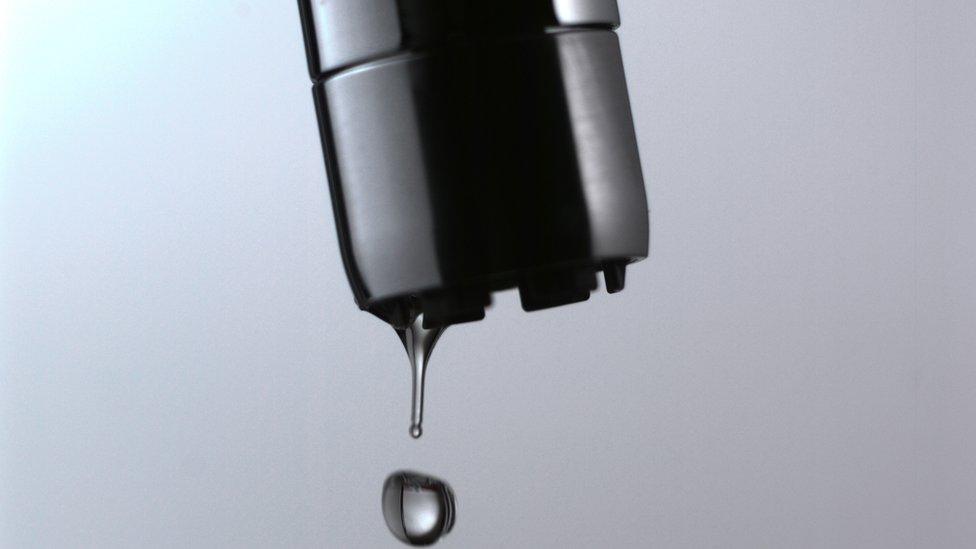South West heatwave: Cattle fans, 'bloodbergs', and Hawaiian parties
- Published
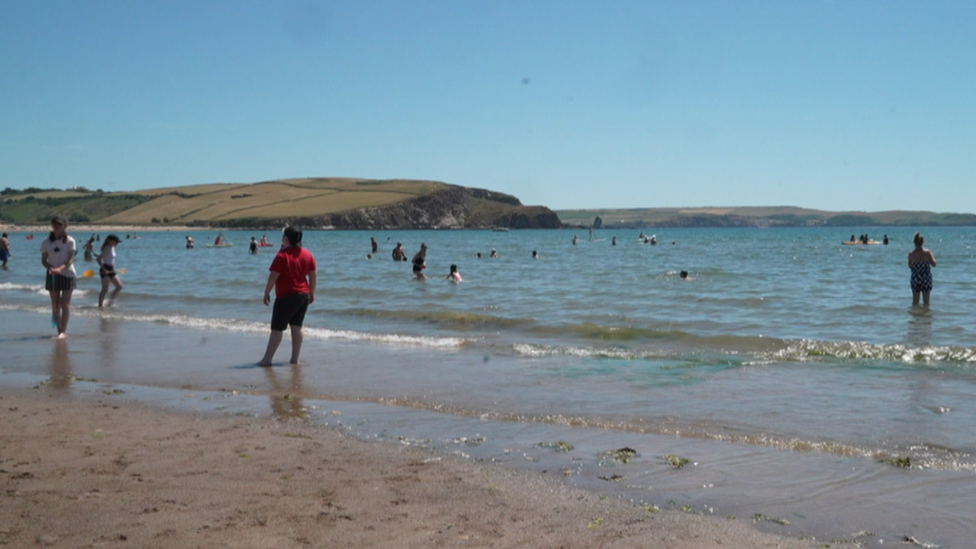
It is set to heat up this weekend in the South West
People in the South West are trying new ways to keep cool during the heatwave.
Devon and Cornwall have an amber heat warning from the Met Office, which has issued its first ever red warning for exceptional heat for parts of England.
The heat could cause health problems across the population, leading to "potentially serious illness or danger to life", the forecaster said.
With an amber warning for Sunday to Tuesday for the South West, people have been finding ways to keep cool.
One dairy farmer has spent £8,000 on electric fans for her cattle shed to prevent them suffering heat stress.
Abi Radford - who owns and runs Buttermoor Farm in Tiverton - said high temperatures could have adverse effects on the cows, such as lower milk yield and fertility issues - as well as having financial implications for her business.
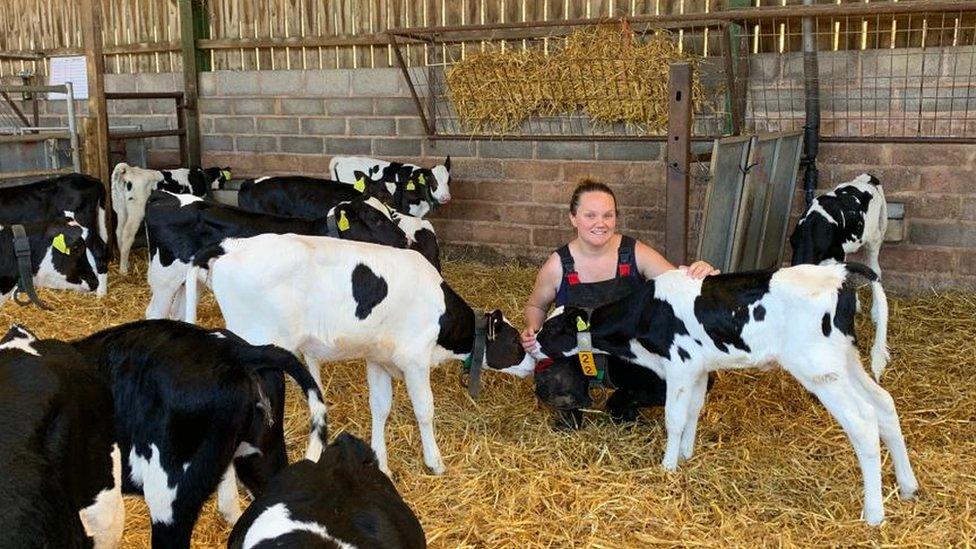
Abi Radford said her cows are happier now they have the fans to keep them cool
She said: "The problem with cows is, above sort of 22 degrees Celsius, they start to show the first signs of heat stress. The first thing you'll start to see with cows is reduced feed intakes.
"That is because the majority of heat that a cow produces comes from rumination, which is the digestion of their food. This means the less food they eat, the less heat they produce."
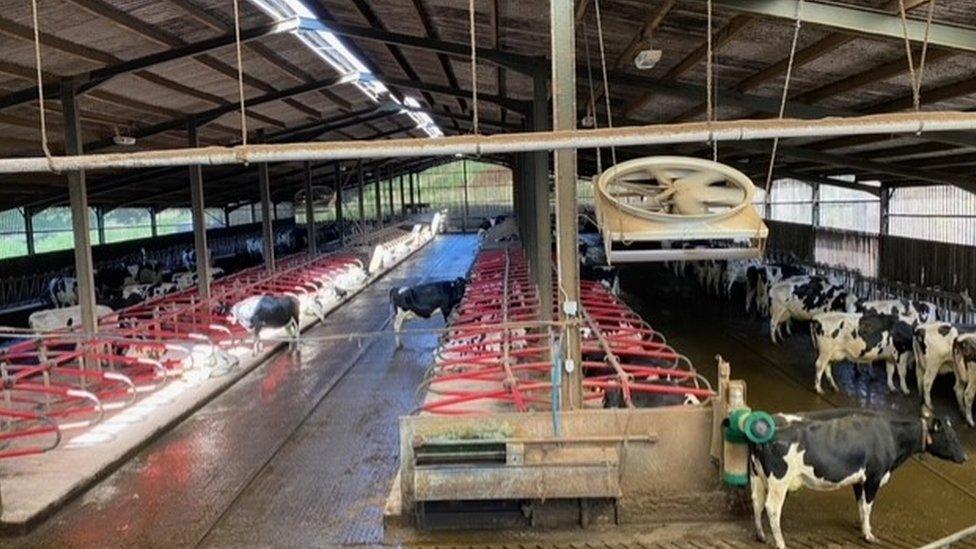
The fans were put in the milking shed, which has a robot system meaning the cows decide when and how often they are milked
Ms Radford said: "Obviously this results in a reduced milk yield, and being too hot impacts their immune systems, and it can also lead to lameness issues because they're standing up for longer periods of time."
She said: "It wasn't a cheap investment by any means, but the cows are loving it now, they're pretty much behaving as they would normally.
"They're lying down, they're eating, they're happy, they're milking."
At Dartmoor Zoo, owner Benjamin Mee, said: "On days like this, our freezers are always full of various buckets of frozen treats for all the different animals that might want to cool down.
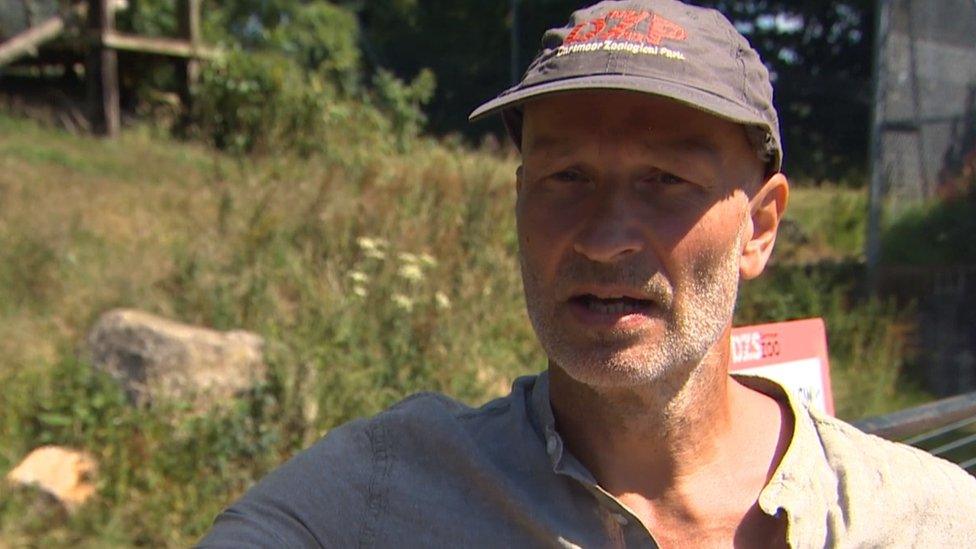
Dartmoor Zoo has an array of animals to care for
"Some of the animals love the heat, and others really can't cope with it very well. Dragon is a Siberian [or] Amur Tiger, so he's used to really low temperatures, and anything we can do to lure him into the moat is to his benefit.
"We had a bloodberg, which is basically blood and ice, chained to his favourite moat toy which is the beer keg. Unfortunately, he's more interested in the beer keg than the ice lolly, but the main thing was that it got him in the water."
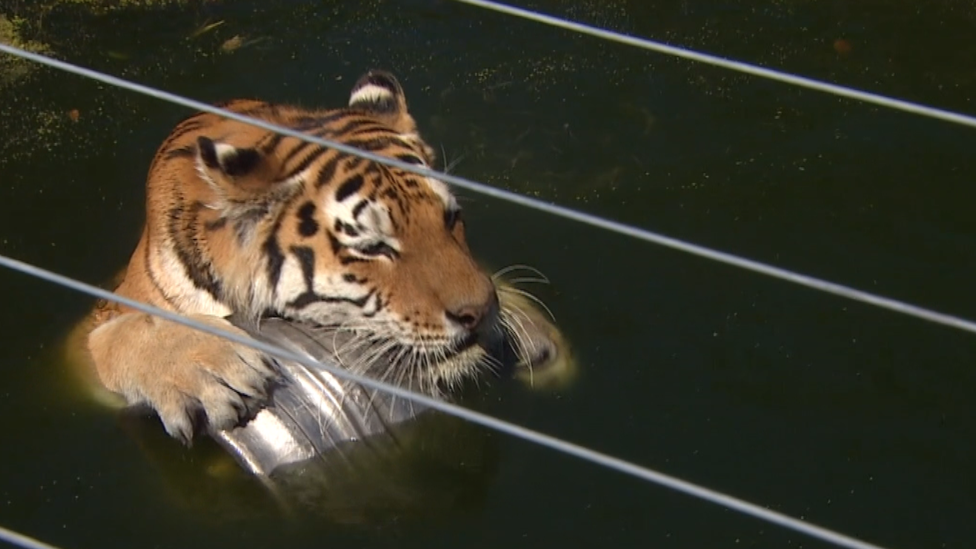
Dragon is used to lower temperatures
He said the Zoo has icicle treats for most of the animals, including the monkeys, because even though they are tropical animals, they could still benefit from cooling down.
But, the heat is not only affecting animals.
The Halfway House, near Liskeard, has reduced the number of restaurant bookings available, so that kitchen and front of house staff have time for breaks to cool down in the heat.
'Catch a breath'
Publican Jane Stokes said: "The current system works that we book three tables every 15 minutes, to stagger the bookings.
"So rather than this, we're actually only doing two tables at 12 and 12:15, which will mean that in between each order coming through, the kitchen staff will be able to leave the kitchen, or go into our cellar next door to cool down."
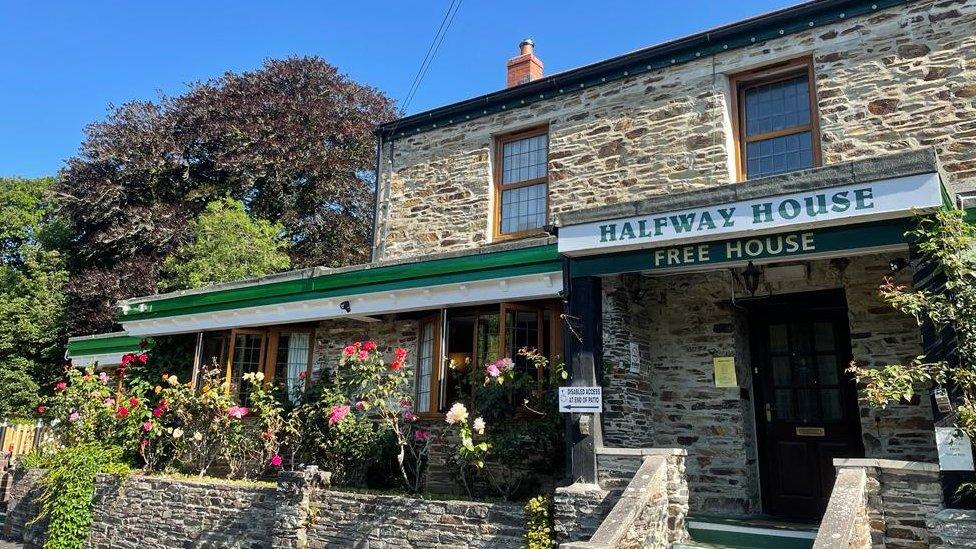
Halfway House owner Jane Stokes said the heat was "too much" for her staff working in the kitchen
She added: "It means it's not a constant, three-hour slog of orders and not being able to catch a breath basically."
Mrs Stokes said some customers were " a little disappointed" last year when this method was rolled out at the Halfway House, but said that overall, people seemed to understand the move.
"I'm anticipating we'll get some people over the weekend who might be disappointed if we do have to turn people away if we are at what we deem to be our capacity, but I have to keep my staff happy," she said.
Meanwhile, Heanton Care Home, in Devon, has transformed into a Hawaiian haven, with a paddling pool for residents to dip their toes in to stay cool, inflatable palm trees, and floral necklaces.
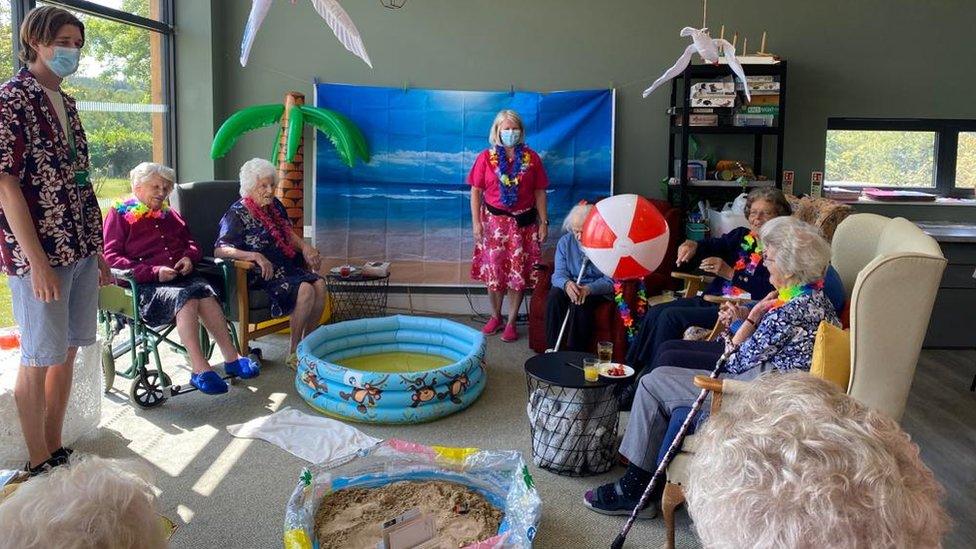
The day room was transformed into a Hawaiian beach
Residents at West Heanton are being offered high water content fruit, and juice throughout the day. Senior carer Erika Winch said they still have their tea and coffee if they like, but that had been lessened.
The day room at the home is air-conditioned, meaning residents can stay cool throughout the day, but staff have put on the Hawaiian party to provide more ways to keep cool.
NHS heatwave advice
Dr Michael Marsh, medical director for NHS England South West, is urging people to use NHS 111 or see GPs - instead of calling 999.
He said: "People can easily get overheated or dehydrated, and can become sick and even die from extreme heats."
He said the NHS is trying to limit pressure on hospitals and emergency departments.
Dr Marsh added: "Clearly, if we add on the risk of more people becoming sick because of heat-related problems, or people not being sensible and making themselves unwell by just not taking proper precautions, we worry that services could become even more stretched."
The NHS said people could treat minor conditions at home.
Pharmacists can offer advice on sunburn, insect bites and stings and will have creams, paracetamol and anti-histamines that can ease discomfort.
During the ongoing heatwave, if someone is showing signs of minor heat exhaustion (headache, dizziness, nausea), NHS advice is to get them to lie down in a cool place, give them plenty of water to drink and help to cool their skin with a sponge or spray.
The NHS said people could reduce their likelihood of sunburn by applying cream, avoiding being out in the sun between 11:00 and 15:00, covering up, and wearing a hat.

Follow BBC News South West on Twitter, external, Facebook, external and Instagram, external. Send your story ideas to spotlight@bbc.co.uk, external.
Related topics
- Published16 July 2022
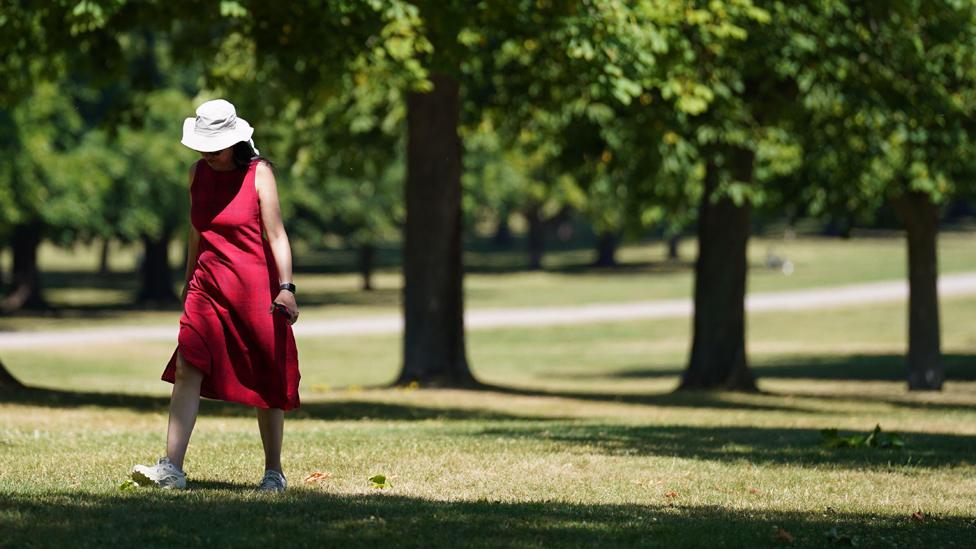
- Published15 July 2022
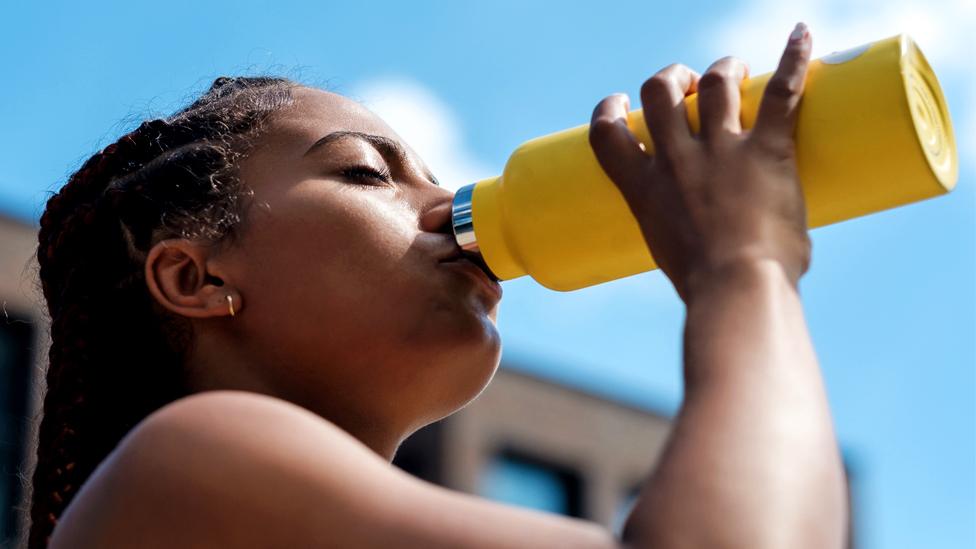
- Published13 July 2022
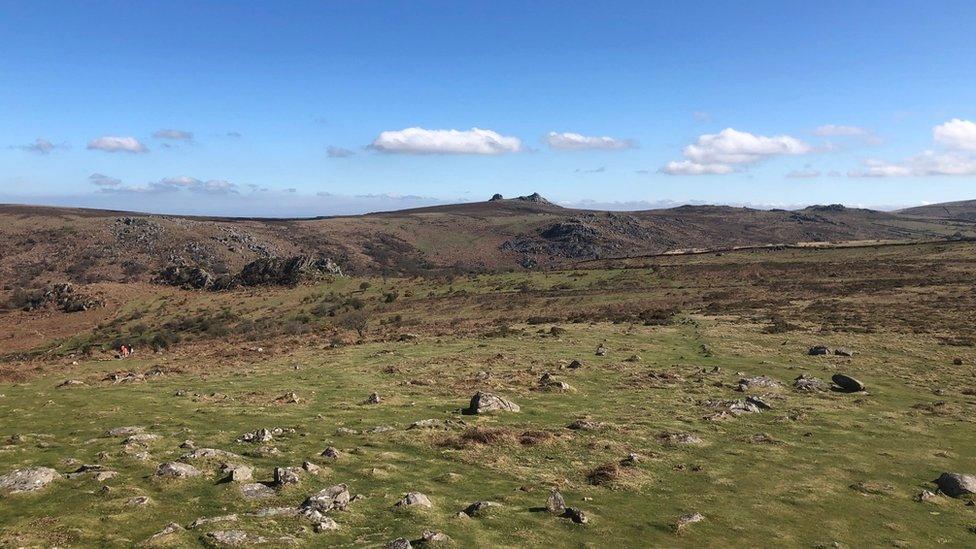
- Published8 July 2022
